Leaving religion is often an incredibly personal choice, but that doesn’t mean you don’t miss certain things about it.

Even if you no longer agree with the tenets of the religion you were previously a part of, have had your faith shaken, or simply don’t want to be part of any sort of organised sect, there are likely elements of the experiences you’ve had with your fellow followers that you often feel nostalgic about. And funny enough, sometimes, what you miss has nothing to do with faith at all—it’s everything around it.
1. The sense of routine that gave structure to life.
Regular services, prayer times, holidays, or even casual weekly gatherings used to create a reliable rhythm. That structure could be comforting, even grounding, especially during times when everything else felt chaotic. After leaving, the absence of that steady cadence can feel strangely disorienting. It’s not about missing doctrine—it’s about missing something that once gave your time shape and made the weeks feel anchored.
2. Built-in community you didn’t have to work for
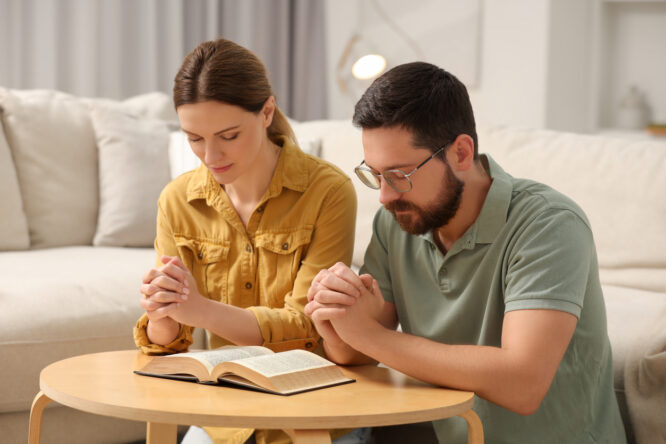
When you’re part of a religious group, community comes pre-packaged. People check on you, invite you over, remember your name, and show up just because you’re part of the fold. There’s a natural ease to that kind of connection. Outside religion, finding that same consistency takes a lot more effort. You realise how rare it is to have people care by default, without needing shared hobbies, deep history, or constant emotional labour.
3. The shared language that made you feel understood
Inside religious spaces, everyone kind of knows the shorthand. You can reference a story, phrase, or ritual and other people immediately get what you mean. It creates a feeling of mutual understanding that doesn’t need explaining. Once you’re out, that shared language is gone. You might still carry those metaphors or words, but using them can feel out of place—or isolating—when the people around you no longer speak that same symbolic language.
4. The comfort of clear moral guidance
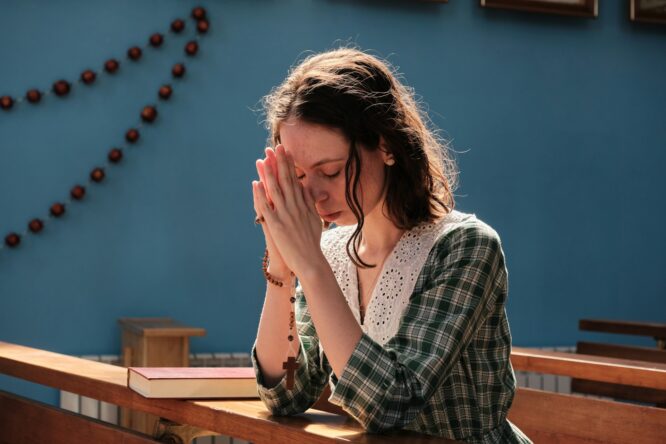
Even if you disagreed with parts of it, there was something strangely soothing about having rules to follow. You didn’t have to question every ethical choice from scratch—it was outlined, expected, and reinforced by those around you. Leaving means redefining your own values, which can be liberating but also exhausting. Morality becomes more grey than black and white, and you’re left figuring out what’s right based on your own compass, not someone else’s map.
5. Singing or music that brought people together

Religious music isn’t just about lyrics—it’s about joining voices, feeling united, and letting the sound wrap around you in a shared moment of emotional release. It creates a kind of bonding that’s hard to replicate. You might not miss the words themselves, but you miss what singing together represented: collective emotion, shared intention, and a kind of presence that feels both joyful and deeply human.
6. Rituals that marked transitions and milestones

From weddings to funerals to weekly rituals, religious life gives meaning to ordinary moments. It acknowledges change and helps people navigate life’s chapters with ceremony, community, and reflection. Without that framework, transitions can feel quieter and sometimes more lonely. The sense of sacredness in everyday life doesn’t always carry over, and you may miss having a container for moments that deserve to feel significant.
7. Knowing exactly where to turn in a crisis

When something went wrong, you used to know what to do. You prayed. You showed up at a place of worship. You asked for guidance. There was a playbook, and people who would rally around you instinctively. Now, even if you’ve built other coping tools, there’s still a gap. You may feel more alone in figuring things out, or unsure where to bring your pain. That loss of spiritual muscle memory can feel more intense than expected.
8. The feeling of being part of something bigger
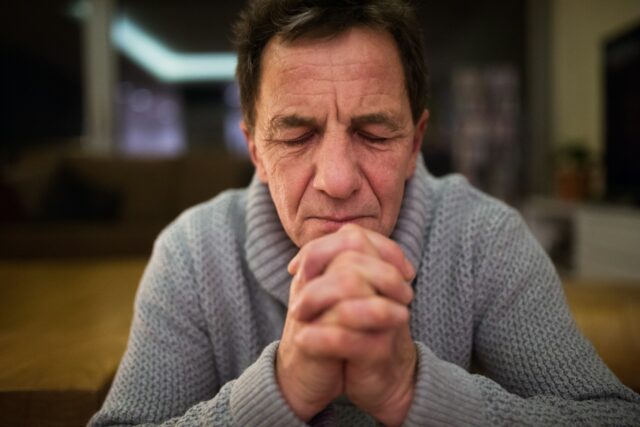
Religious spaces often offer a sense of greater meaning—something beyond yourself that connects you to history, community, or a larger story. Whether you believed it literally or not, the emotional impact was still real. Leaving can create an internal void, especially if you haven’t found new ways to cultivate awe, purpose, or collective identity. The rituals may be gone, but the longing to belong to something bigger often lingers.
9. The way holidays felt full of meaning
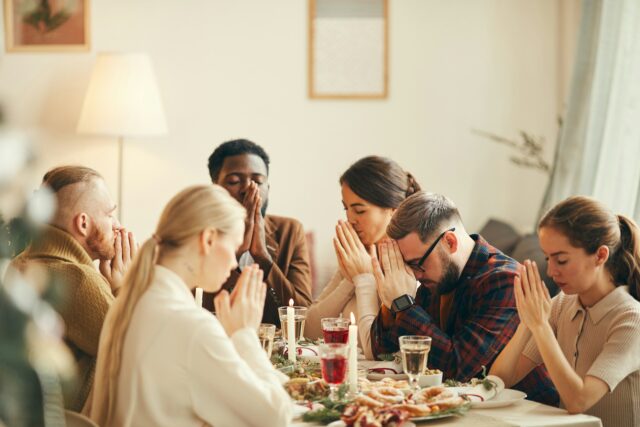
Religious holidays weren’t just about gifts or food—they came with stories, preparation, community events, and emotional layers. They created anticipation and brought people together in ways that felt intentional. Secular holidays can feel more hollow by comparison. Without the shared rituals or emotional weight, you might find yourself missing the way those moments used to centre reflection, celebration, and connection all at once.
10. The act of serving other people in a structured way
 Source: Pexels
Source: Pexels Religious communities often encourage volunteering, donating, or helping those in need. Because it’s woven into the culture, it becomes second nature—something you just do, without needing to look for opportunities. After leaving, it can be harder to find those same channels for giving back. You may still care deeply, but miss the structure and regularity of helping in a shared setting with those who are equally committed.
11. Feeling automatically supported during big life changes
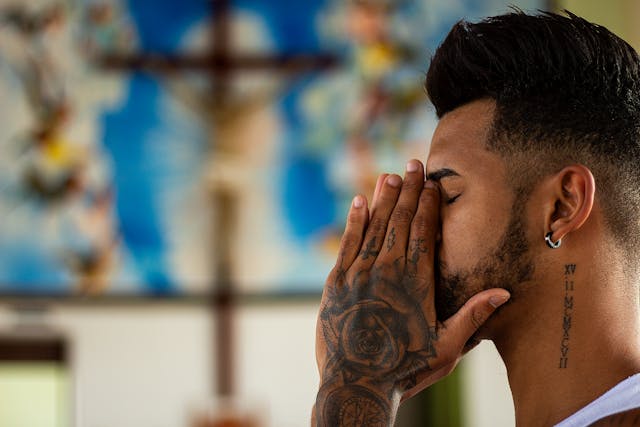
Births, losses, illnesses—religious communities tend to show up without needing to be asked. Food gets delivered. Cards arrive. People check in. There’s an expectation that you’ll be held during hard times. Outside that framework, you might find yourself wishing people would rally without needing an invite or a crisis announcement. It’s not about needing religion; it’s about missing that kind of embedded compassion.
12. The consistent moral conversation everyone shared
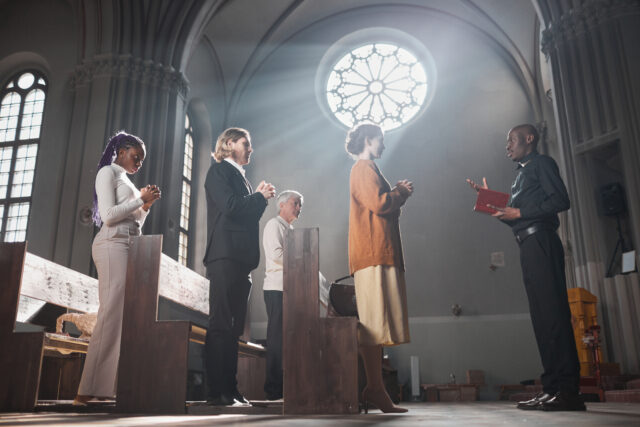
Even if it sometimes felt narrow, there was a constant conversation happening about how to live well, treat other people, and grow as a person. It was built into sermons, groups, readings, and casual conversations. Now, that shared ethical dialogue is harder to find. You have to look for people who want to reflect, question, and evolve intentionally—which can feel isolating if you’re craving regular spiritual or emotional depth.
13. Having a reason to gather across generations

Religious communities often mix ages in a way most modern spaces don’t. You’d sit next to a child one week and an elderly person the next. It gave life a kind of intergenerational texture that’s hard to recreate. Once you step away, you realise how rare it is to be in meaningful contact with people outside your own age group. And even if you don’t miss the sermons, you miss the way it brought everyone into one room, on equal footing.
14. The emotional release of confession or reflection

Some traditions offer confession, prayer, or structured reflection as a way to let go of guilt, find clarity, or seek forgiveness. Even if you’ve outgrown the belief system, the practice itself can be something you long for. Without that outlet, emotions can get stuck. You may find yourself missing the opportunity to process mistakes or shame in a ritualised way—one that felt both personal and communal at the same time.
15. The identity it gave you, even if it no longer fits

Religion often offers not just belief, but identity—rituals, roles, phrases, and values you could hold onto. Leaving can feel like peeling away a label you wore for years, even if it no longer reflected who you are. That identity might not feel right anymore, but its absence still leaves a space. And while you may be building something new, it’s okay to miss the familiarity of something that once held you, even if it couldn’t hold all of you forever.




